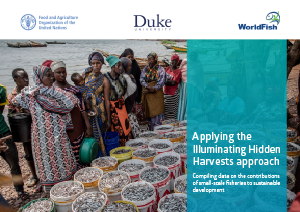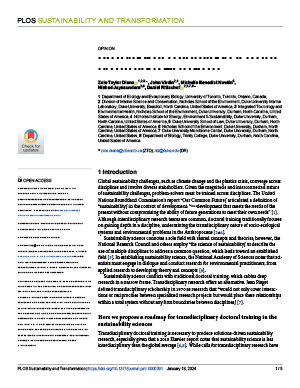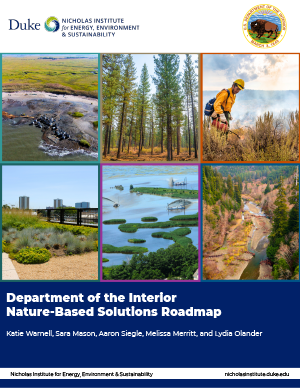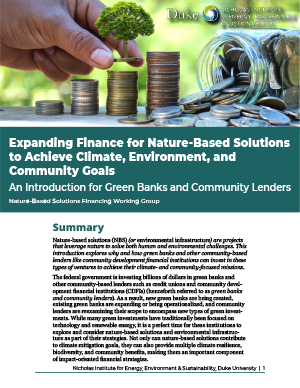Publications
From Concept to Practice: Financing Sustainable Blue Economy in Small Island Developing States, Lessons Learnt from the Seychelles Experience
Despite international enthusiasm, private-sector finance for sustainable development and the blue economy still makes up a very small percentage of global investment. Repurposed bonds and debt-for-nature swaps have gained support with policymakers, international organizations, and investors keen to align their investment with global goals and borrowing countries with large ocean domains seeking new sources of finance.
Adapting to the Impacts of Climate Change: A Comparative Study of Governance Processes in Australia, China, and the United States
In 2023, UN climate proceedings (COP 28) made clear that challenges of adapting to climate impacts are now a priority comparable to the focus on mitigation (greenhouse gas reduction). Floods, wildfires, drought, and heat are causing great damage in the United States and other highly developed countries which, on paper, were prepared. The report explains that in contrast to mitigation (greenhouse gas reduction) and further now longstanding environmental governance approaches, adaptation may call for transformation of core governance structures, tools and resources.
Building an EV Workforce: A Review of Southeast Transportation Electrification Workforce Development Training Programs
With the advancement of the electric vehicle (EV) industry in the southeastern United States, from vehicle and battery manufacturing, to on-road EVs and accelerated deployment of charging stations, there is a substantial need for a skilled workforce to build and service these vehicles as well as install and maintain charging infrastructure. This study seeks to understand existing EV-specific workforce development efforts across ten states in the Southeast, and provide policy and program options for State Energy Offices, State Departments of Transportation, and other state agencies.
Evidence Library for Mangrove Degradation and Recovery
Mangrove ecosystems provide numerous benefits to both people and nature, including providing important habitat for wildlife species, nursery habitat for fish and shellfish, recreational opportunities, and protection for coastal communities. This evidence library synthesizes the scientific literature and expert knowledge to share information on what is known—and not known—about how storm-induced changes to mangrove ecosystems might impact mangrove ecosystem services.
Applying the Illuminating Hidden Harvests Approach
This document has been adapted from the research protocol used to compile country case study data and to produce the results summarized in the 2023 report Illuminating Hidden Harvests: The Contributions of Small-Scale Fisheries to Sustainable Development, coproduced by FAO, Duke University, and WorldFish.
Transdisciplinary Doctoral Training to Address Global Sustainability Challenges
Global sustainability challenges, such as climate change and the plastics crisis, converge across disciplines and involve diverse stakeholders. Given the magnitude and interconnected nature of sustainability challenges, problem-solvers must be trained across disciplines.
Department of the Interior Nature-Based Solutions Roadmap
This comprehensive resource, created in collaboration with the US Department of the Interior, is a first-of-its-kind reference for implementing nature-based solutions. Nature-based solutions are actions to protect, sustainably manage or restore natural or modified ecosystems to address societal challenges—including climate change—in ways that help people and the environment. Examples cited in the Roadmap range from urban stormwater and runoff management to prescribed burns to living shorelines to restoration of various ecosystems.
Projecting Electricity-Sector Investments Under the Inflation Reduction Act: New Cost Assumptions and Interactions with EPA’s Greenhouse Gas Proposal
Energy Pathways USA, an initiative of the Nicholas Institute for Energy, Environment & Sustainability at Duke University, has released a report that offers new insights into US energy transition investments. This report comprehensively models the intersecting effects of the Inflation Reduction Act, clean electricity development cost increases, and the impacts of proposed US Environmental Protection Agency greenhouse gas regulations for fossil fuels.
Financing Nature-Based Solutions via the Greenhouse Gas Reduction Fund
The $27 billion Greenhouse Gas Reduction Fund (GGRF) in the Inflation Reduction Act—particularly the $14 billion National Clean Investment Fund and $6 billion Clean Communities Investment Accelerator—represents a once-in-a-generation opportunity to leverage private capital for investments in environmental infrastructure and nature-based solutions, but the groundwork needs to be laid now. This document summarizes the relevant GGRF funds and their applicability for nature-based solutions.
Expanding Finance for Nature-Based Solutions to Achieve Climate, Environment, and Community Goals: An Introduction for Green Banks and Community Lenders
There has been unprecedented recent government investment in nature-based solutions. This document lays out a vision that describes why nature-based solutions are relevant and important to green banks' and community development financial institutions' climate- and community-driven missions, and what types of projects these institutions might support.










